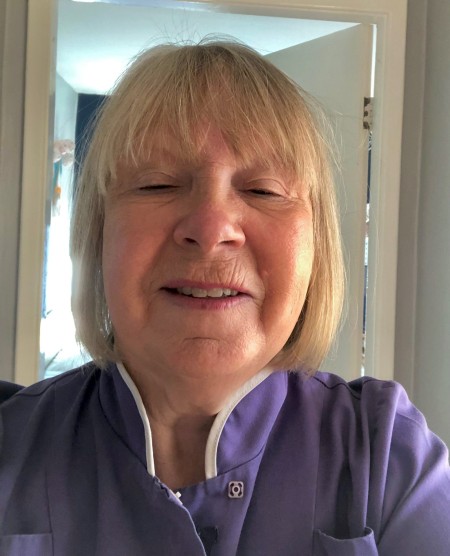Publish date: 20 September 2021
To mark Urology Awareness Month Chris Hall, Lead Nurse for Urology, tells us more about her role and what her team is doing differently

I’m Chris Hall and I work as a Lead Nurse for Urology. My role involves working closely with the clinical lead consultant, wider urology team and management team to develop urological strategy and support the daily management of urology services.
As part of my role, I also help to facilitate professional development of the team and have developed clinical skills training packages and introduced standard operational procedures, clinical guidelines and pathways for various nurse led clinics. I play a key role in identifying and leading service improvement within urology, supporting and encouraging the nursing team to extend their skills and knowledge in order to provide excellent care for our patients.
I qualified as a nurse in 1979 and I came to work for Northumbria as a member of the staff bank until I was later offered a permanent post. Urology at this time was becoming a speciality within itself, and although it wasn’t my speciality of choice at first, I stayed with it due to its diversity. I am passionate about people being able to freely discuss ‘taboo’ subjects and Urology Awareness Month is a great opportunity to encourage people to talk about urology health – a topic which can make a huge difference to people’s lives.
My job is full of variety and there is never a typical day, which for me is one of the attractions. I work with a small but expanding team, who are very supportive, motivated and willing to embrace change to develop the services within the trust.
At Northumbria we have been re-designing our service to deliver patient centred care and move forward using new developments in technology, introducing diagnostic and treatment procedures that can be carried out under local anaesthetic, in an outpatient setting.
One of the most recent changes we have made is moving transperineal biopsies of the prostate from a theatre setting to an outpatient setting under a local anaesthetic. We are very proud of this development and are one of six trusts offering this service, which has developed rapidly since we introduced it last year.
We are also working to develop other new techniques to offer to patients who are undergoing diagnostics and treatments for prostate and bladder cancers.
Like many other services, Covid meant some changes needed to be made to the way in which we work, some of which have been really positive and will remain including telephone assessment and review clinics. Having the opportunity to carry out these clinics virtually has really helped to streamline the care pathway, highlighting that not all patients need to attend an in-person appointment in a hospital setting for what may be a 5-minute chat.
Having worked during the pandemic I will always remember the comradery, positivity, inclusivity and support not only within my team, but across the trust.
Working with such a great team and seeing the positive impact we can have on patients and their families is what has kept me in nursing all of these years and I’m proud to still be here today working flexi-retirement in a job I love.
